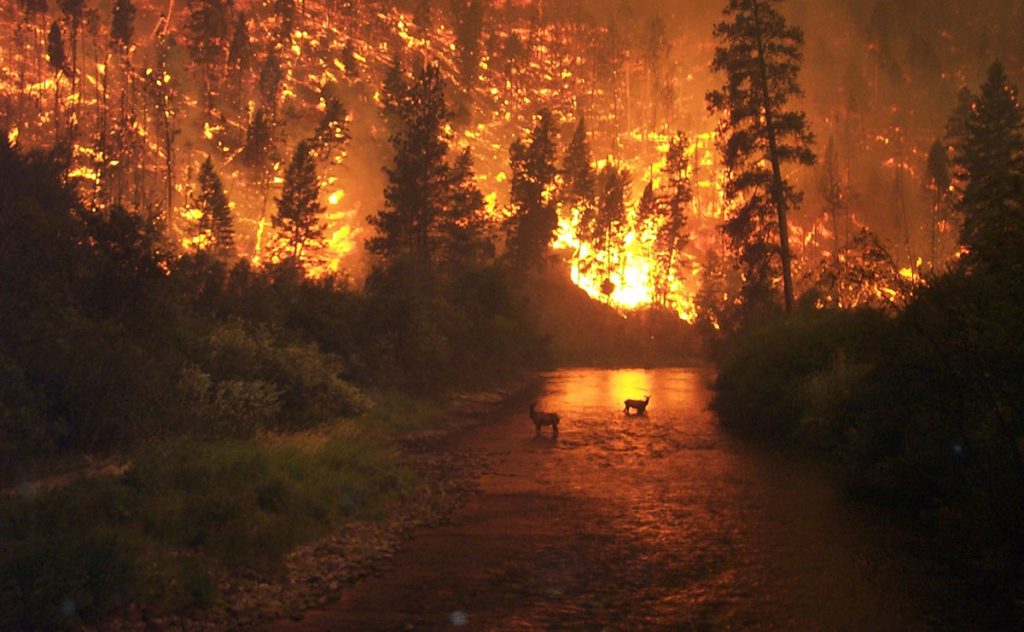Ecological Nemesis:
Our planet is facing multiple crises at an alarming frequency—the most challenging one of course is the current pandemic which has completely disrupted our lives. Adding to this are the several severe storms at an unprecedented frequency over the east coast of the US and in other parts of the world, the raging forest fires in California, and in the Amazon, the erratic monsoon over India resulting in devastating floods in several parts of the country. All these are attributable, to the impacts of climate change.
During the peak of the lockdowns at the early stages of the pandemic, the global carbon emissions were starting to show a downward trend — we were all seeing the blue skies over our cities never seen before! However, restrictions have had a terrible economic impact and are therefore definitely not a solution.
It is clear that long-term, inclusive, more balanced growth and sustainable use of resources are needed to tackle this climate crisis.
“We need science, solidarity, and solutions to tackle both the COVID-19 pandemic and the climate crisis…. I urge leaders to heed the facts…, unite behind the science, and take urgent climate action to set a path towards a safer, more sustainable future for all.”
-António Guterres, Secretary-General of the United Nations

The private sector played an important role in pushing through the Paris Agreement by committing to deep emission cuts. In line with these commitments, a group of companies along with the WWF have put together a framework, aiming to bring together companies who want a credible, scientific, and globally accepted way of becoming, ‘Climate Positive’.
Corporates around the world can make a huge contribution to tackling climate change by joining this movement. What this entails for companies has been outlined by WWF and is reproduced below:
The Climate Positive Movement:
The Basic Framework
Committing to becoming a climate-positive company means to reach net-negative emissions by 2040 at the latest. A company does this by reducing and physically removing more greenhouse gas emissions from the atmosphere than the whole value chain emits regardless of business growth. This includes strong advocacy for enabling policies and engagement with others to do more together.

A company committing to climate positive should:
- Set climate targets for the entire value chain (scope 1-3) aligned with the recommendations from IPCC and the Science-Based Targets initiative (SBTi) to stay within the 1.5°C trajectory;
- To advocate clear and uncompromising support to the recommendations of the Paris Agreement, IPCC, the Science-Based Target Initiative (SBTi), and relevant sectoral road maps to further accelerate the movement towards a low carbon society. It also includes encouraging sustainable customer purchases and enabling necessary behavioral changes;
- Not purchase carbon credits (i.e. “offsets”) to delay or replace any needed reductions of greenhouse gas emissions within the value chain (scope 1-3) required to reach the 1.5°C target. Carbon credit purchases should only be made in addition to such efforts to reach net-negative emissions. Carbon credits should clearly be stated as a short to the mid-term solution and should be reported separately. Meaningful, robust, and lasting carbon removals should be realized to fulfill the climate positive ambition.
Note: more information on the above is available at https://www.wwf.se/foretag/klimat/companies-develop-climate-positive-position-together/
Why should trees be more valuable to cut down than standing in the forest? Why should we continue to dig deeper and deeper to extract more and more minerals and , while decimating the environment and the communities who live and survive around these ecologically fragile areas? There is obviously something wrong with this economic model!






